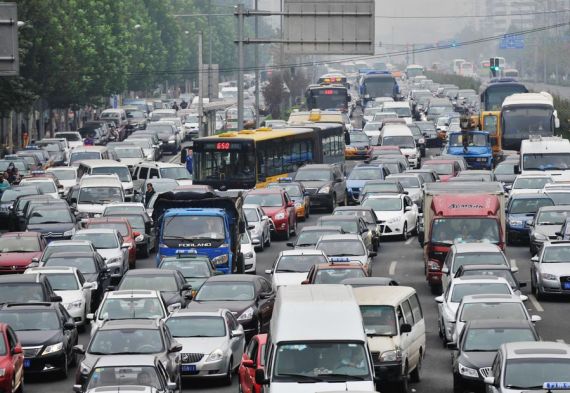Legislators have today (Thursday) asked for the Macau SAR government to advance with more ambition efforts to reduce carbon emissions produced in the city and to speed up the transition of internal-combustion vehicles into electric.
According to legislator Ip Sio Kai, there must be an articulation with the intentions to develop Macau as a “world centre for tourism and leisure”, and to promote the development of the SAR into a low carbon city and region, so as to match economic and social development with ecological protection.
“In terms of the development of low-carbon tourism, there is a need to reduce, as far as possible, the use of fossil fuels with a high carbon content and reduce greenhouse gas emissions through various means, such as innovation technological and institutional, industrial transformation and the development of new sources power,” the appointed legislators stated at the AL today.
To achieve those goals, Ip raised attention to the need to improve various urban infrastructures, including raising green standards for wastewater treatment, energy supply and waste treatment, while improving greenery within urban areas.
According to a study involving Macau University of Science and Technology researchers, total greenhouse gas emissions from buildings in Macau have grown quickly from 1.52 million metric tons (Mt) CO2e in 1999 to 5.91 Mt CO2e in 2016.
Studies have also indicated that the gaming industry is responsible for more than 62 per cent of all annual carbon emissions produced in Macau.
At the same time, Macau is considered to be very exposed to climate change-related sea-level rise and with a recent report indicating several of its areas could be flooded by 2050 due to climate change-related sea-level rises.
In 2019 the United Stations Assistant Secretary-general for Economic Development and Chief Economist, Elliott Harris, also told MNA that the Macau Government should set a “clear and logical policy” framework for the transition from fossil fuel-based energy sources to renewable energy.
Meanwhile, in order to support China’s goal to eliminate carbon emissions in the Greater Bay Area by 2050 an advisory alliance combining governments and regulators from Hong Kong, Guangdong and Macau was created in May, 2020.
The alliance looks to ensure money is channelled through bank loans, bond issues, equity offerings and other funds to green project investments, with a special green classification within banks to be created.
“Macau has a land area of just 30 and such square kilometers, but the development of the Greater Bay ecosystem Guangdong-Hong Kong-Macau will further promote the Macau ecosystem,” Ip added.
Legislator Lam Won Wai raised attention to the lack of complementary facilities and a concrete development plan that could boost the adoption of electric vehicles in Macau.
“According to statistical data, as of October 31, 2020, there were 1,218 electric vehicles in Macau. Due to the affordable price of these vehicles and the exemption from vehicle tax motor vehicles and circulation tax, the number of new vehicle registrations has doubled in recent years,” Lam cited.
Lam then cited how authorities in Hong Kong last month released a plan for the widespread adoption of electric cars, with the aim of achieving zero emissions in cars by 2050 and, by 2035, stop registering gasoline cars and cars hybrids.
“In addition, medium and small cars to be purchased by the government have to be electric, and the Government will urge and promote public bodies to follow this measure, for the generalization of electric cars. More, Hong Kong will invest HK$2 billion in an experimental project, to finance the installation of equipment for loading in the parking lots of private buildings.
However, the legislator connected to the Macau Federation of Trade Unions (MFTU) noted that when he requested that more measures to support the development of electric vehicles were taken by authorities, the Environmental Protection Bureau (DSPA) only stated that there are currently 200 charging stations for electric vehicles a number said to be sufficient to meet local needs.
“Therefore, there were no plans to increase these points, nor is it planned to launch a subsidy plan for electric vehicles. This demonstrates that the Government does not have policies or long-term objectives for the development of electric vehicles in Macau,” he noted.
“With the integration of the Energy Sector Development Office in the DSPA, the promotion of these automobiles should be reinforced, to reduce CO2 emissions. We need to improve the assisting facilities and define a generalization plan. In addition to the installation of equipment charging in the appropriate public spaces, it is necessary to simplify the formalities for the installation of equipment in private parks and provide financial and technical support”.




















